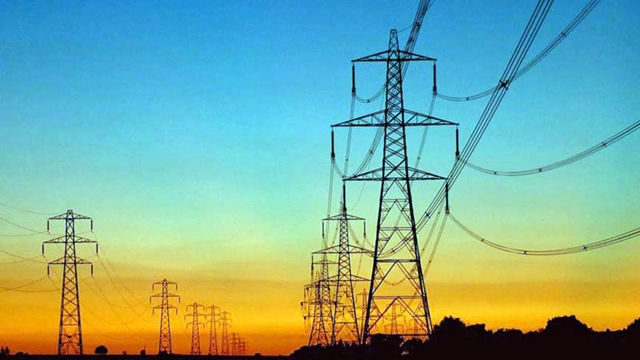SAM
Published:2019-11-17 23:21:08 BdST
Power generation almost double the need
FT ONLINE
The nation's hyper-drive to add new power plants is proving true the timeless wisdom that excess of everything is bad. It already has achieved almost double the power than it needs.
While Bangladesh's demand for power hovers around 12,000 megawatts, it now has a generation capacity of 22,562 megawatts.
And in the next two years, the power generation capacity will hit 35,000mw with 51 new plants coming into operation.
But at that point in 2021, demand will not exceed 20,000mw even with the most optimistic of projections.
So what happens with the excess idle power? The government has to pay private power producers a substantial amount of money as "capacity payment" for keeping their plants idle.
During the last fiscal year, the Bangladesh Power Development Board (BPDB) had to pay almost Tk9,000 crore to 74 private companies as capacity payment. In turn, as compensation, the government had to provide subsidy to the power board.
Subsequently, the power board had to suspend payments to private power producers for more than five months.
"After getting budgetary support from the government, the dues have been cleared," Selim Abed, member (finance) of the BPDB, said.
As per international standards, the ideal power distribution system should not have more than 20 percent of extra power generation capacity.
Bangladesh, which reeled from a never-ending load shedding problem for more than two decades until recent times, now has 35 to 40 percent of excess power. The amount of excess power will be 60 percent in winter when demand for power naturally drops.
According to Bangladesh Economic Review 2019, the power board has incurred a cumulative loss of Tk60,370 crore in power purchase and operation since 2007-08. In the last fiscal year, the operating loss of the power board reached Tk10,000 crore, its highest to date.
These losses are being incurred despite the fact that the government has gone for manifold hikes in power prices over the last decade at the retail level.
A big reason for this loss has been a turning to rental power plants a decade ago as a short-term quick solution to load shedding. Beginning especially in 2010, dozens of rental power plants came into operation using furnace oil and diesel – which are expensive fuels in contrast to natural gas and coal.
With new power plants on the way, the government will now phase out all rental power plants. But even with their closures, the number of new plants is so overwhelming that they will have disproportionately more capacity than required by demand.
"We are worried that private investments across the country have not grown in line with power generation," said an official of a private power company.
"This is already affecting the power board and if things go on like this, the government will find itself in a big financial mess", he added.
He noted that the gap between peak demand in the evening and low demand at night has also widened considerably, forcing many power plants to remain idle for a long time on any given day.
"Instead of new power, the government's number one priority should be to take steps to rapidly help private investors build new factories and light industries. We need to utilise this excess power to produce goods and increase our exports," he suggested.
Khaled Mahmood, BPDB Chairman, agreed that the power board did not get enough requests for new connections from industries and the commercial sector as had been expected.
"But people are taking new connections and we are hopeful that demand will exceed 15,000 megawatts next summer," he said.
Prof. Mohammad Tamim, Vice-Chancellor of Brac University and an energy expert, said, "There is no doubt that keeping excess power is expensive for us. Therefore, what we need to do is re-assess our demand and cancel the contracts of all inefficient rental and diesel-fired quick rental plants."
A source at the Prime Minister's Office said that Prime Minister Sheikh Hasina a few months ago had instructed officials not to pursue new power projects for the time being. Nevertheless, several large power agreements have been signed-in defiance of her instructions.
Unauthorized use or reproduction of The Finance Today content for commercial purposes is strictly prohibited.


